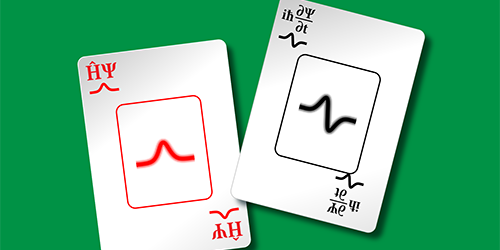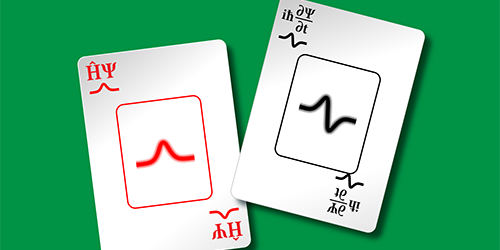Playing Games with Schrödinger
Game theory considers systems of players that choose a strategy to achieve some goal, such as higher profits or better survival chances. When the number of players is very large, researchers will often model the game with a mean-field approach that averages over the behavior of all players. New theoretical work couches mean-field game theory in terms of the Schrödinger equation, which quantum physicists have been playing with for nearly a century. Thus the mathematical tools developed to describe quantum systems might now bring insights to mean-field games.
A simple, representative example of a mean-field game is the schooling of fish in a river. Biologists cannot model every possible fish interaction, so they take the average fish density in different regions, and then use this “fish field” as an input for determining the behavior of individual fish. Previous work using mean-field models has relied on numerical simulations, which generally don’t reveal the underlying mechanisms that drive the system.
Igor Swiecicki from the University Paris-Saclay, France, and colleagues have shown a way to analytically solve a certain class of mean-field games that includes the fish-in-a-river example. In this case, each fish chooses a swimming speed that minimizes a cost function. This function includes the energy expended by the fish and an interaction term that models, for instance, the incentive for fish to swim together to ward off predators. The derived mean-field game equations have the same form as the Schrödinger equation with an imaginary time variable. The wave-function solution for the distribution of fish in a river is a soliton, which matches the results from numerical simulations.
This research is published in Physical Review Letters.
–Michael Schirber





